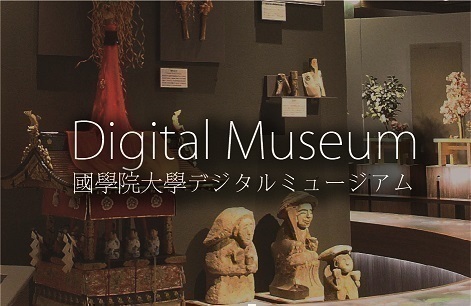- トップ
- Encyclopedia of Shinto
- Sojin
Encyclopedia of Shinto
| Main Menu: | |
| Links: |
詳細表示 (Complete Article)
| カテゴリー1: | 7. Concepts and Doctrines |
|---|---|
| カテゴリー2: | Basic Terms |
| Title | Sojin |
| Text | Progenitor kami of a clan. Here a kami is not viewed as a transcendental being but rather is a concept within the genealogical relations of living people. A synonym of sojin is oyagami (parental deity), where oya does not necessarily refer to a progenitor but rather has a more general, comprehensive connotation. It is based on the belief that all human beings are descendents of kami. The term sojin does not always imply an ancestral deity of a certain bloodline or particular locality. Amaterasu, the ancestral goddess of the tennō (emperor), is a good example. The progenitor kami of the tennō's line is alternatively termed kōso (imperial ancestor), tenso (heavenly ancestor), or taiso (great ancestor). Compendium of Aristocratic Kindreds (Shinsenshōjiroku), which was compiled in the Heian period, categorizes families in the Kinai region according to their ancestors. Those whose ancestors were tennō were designated kōbestu; those whose ancestors were kami were designated shinbetsu; and those whose ancestors were foreign immigrants were designated shoban. The category of those with kami ancestors is further divided into three types: those whose kami ancestors were heavenly kami were tenjin; those whose ancestors were descendents of kami were tenson; and those whose ancestors were earthly kami were chigi. The progenitor deity for some important historical clans are noted below: Abe no ason — Ōhiko no mikoto (Left capital, tennō descent) Kibi no ason — Wakatakehiko no mikoto (Right capital, tennō descent) Fujiwara no ason — Ame no koyane no mikoto (Left capital, kami descent, tenjin) Isonokami no ason — Kannigihayahi no mikoto (Left capital, kami descent, tenjin) Ōtomo no sukune — Ame no oshihi no mikoto (Left capital, kami descent, tenjin) Owari no muraji — Hoakari no mikoto (Left capital, kami descent, tenson) Inbe no sukune — Ame no futotama no mikoto (Right capital, kami descent, tenjin) Kamo no agatanushi — Taketsu no mi no mikoto (Yamashiro, kami descent, tenjin) Ōmiwa no ason — Ōkuninushi no mikoto (Yamato, kami descent, chigi) Kuzu — Ishiho oshiwake no kami (Yamato, kami descent, chigi) Tsushima no ason — Ame no koyane no mikoto (Settsu, kami descent, tenjin) Tsumori no sukune — Ame no ho akari no mikoto (Settsu, kami descent, tenson) Uzumasa-kō no sukune — Shikōtei (Left capital, immigrant descent, Han) Miyake no muraji — Ame no hihoko no mikoto (Right capital, immigrant descent, Silla) The phrases such as "sumera ga mutsu kamurogi" (cherished ancestral deity of the tennō) in the Great Purification liturgy (oharae kotoba) archived in Engishiki, or "waka mutsu kamurogi" (our cherished ancestral kami) referred to in the Kōtoku chapter in Nihongi both suggest a familiar and beloved parental kami. This traditional view has a strong connection to the idea of a parental deity in modern new religions. See also Oyagami ,Shinsenshōjiroku — Nishioka Kazuhiko |




